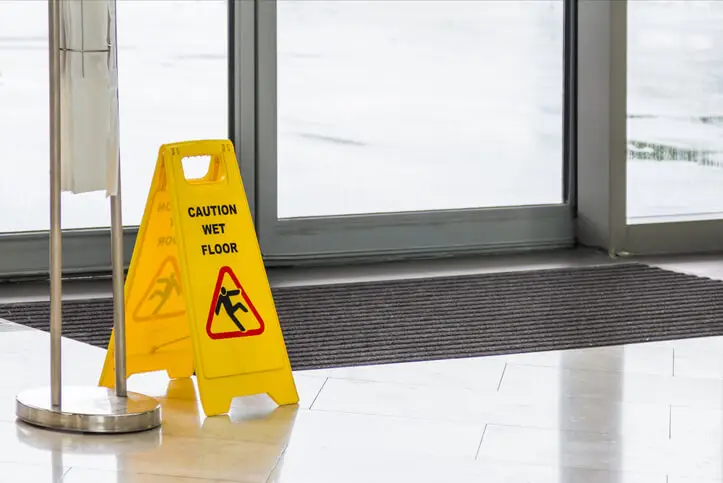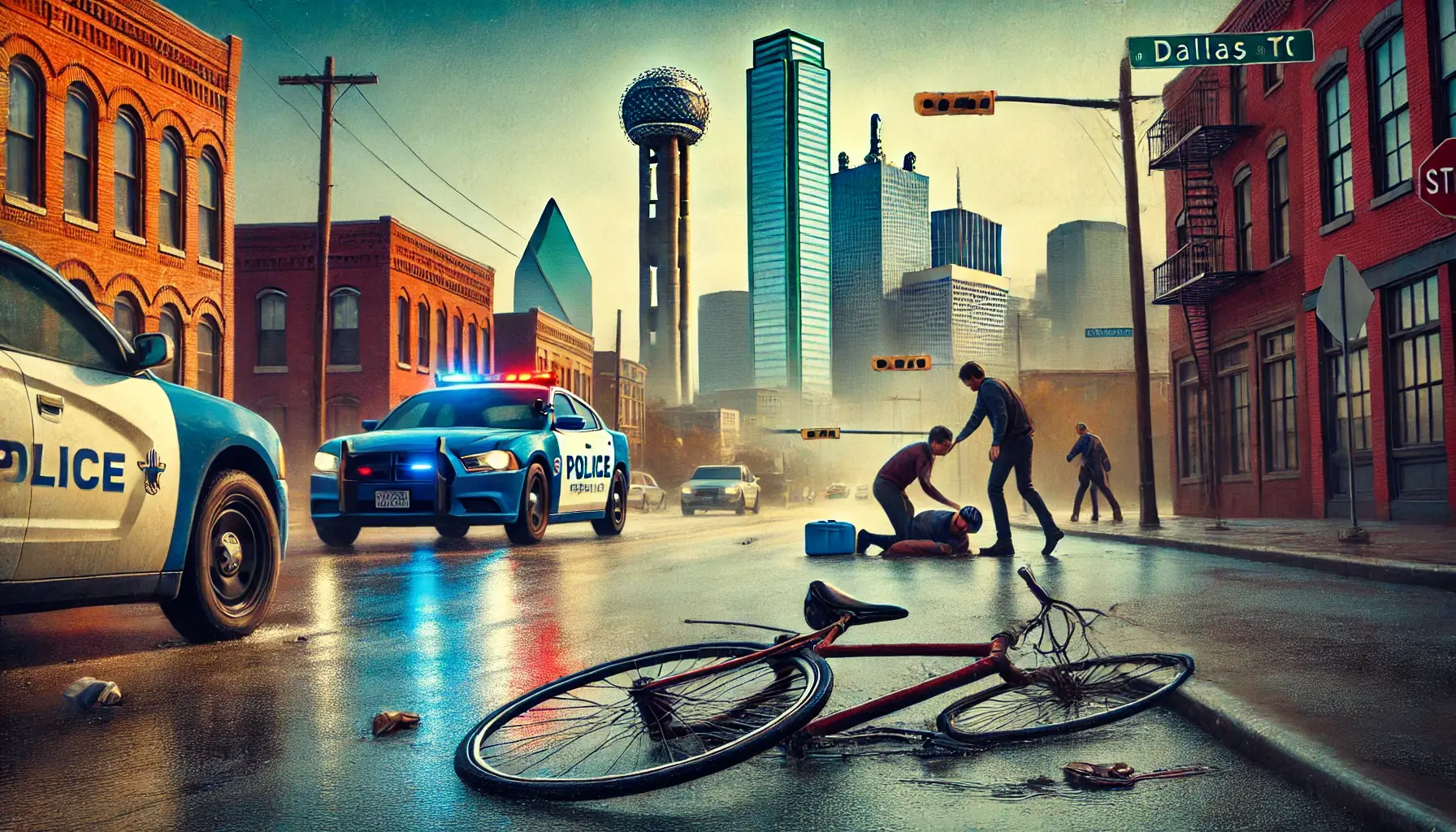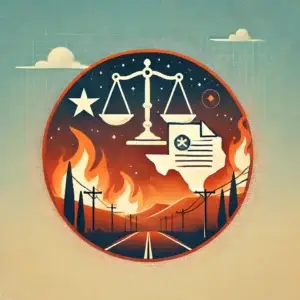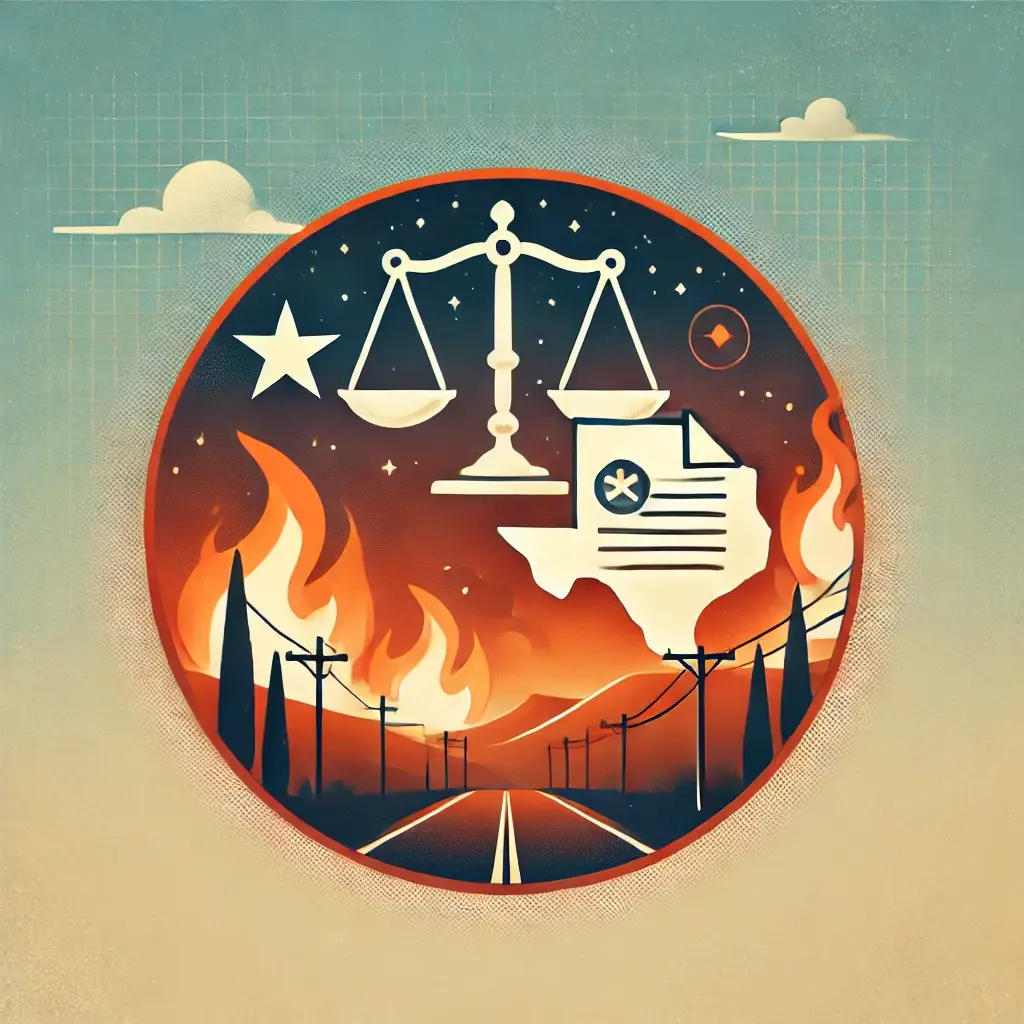Was a property owner legally “negligent” in their actions? Find out what role negligence plays in a premises liability cases.
The top thing you have to prove to win your slip and fall accident claim is the negligence of the property owner or manager.
But legally speaking, what does it mean to be “negligent?”
What kinds of actions show negligence by the property owner or manager?
And how do you prove it?
Did you know you can be negligent too? Your own negligence doesn’t necessarily prevent you from winning any compensation (although it can).
To learn whether you may be entitled to compensation for your injuries, take a couple minutes to learn more about negligence:
Could the Property Owner Have Prevented the Accident?
Even though you may be injured on someone else’s property, that doesn’t mean you’re immediately entitled to compensation for your injuries.
For example, say you go to your local supermarket. They just put down a new layer of mulch around the exterior of their building.
The mulch butts up against the sidewalk. You accidentally step into the mulch, and twist and break your ankle.
Can you recover compensation for that?
Probably not. Mulch is expected to be in that location. The property owner doesn’t have an obligation to warn you of that mulch with a sign. And you have a responsibility to be aware of your surroundings.
Property Owners Do Have a Duty to Maintain Reasonably Safe Conditions
[embedyt] https://www.youtube.com/watch?v=_EMER4jSggE[/embedyt]
This aspect of negligence gets quite complicated. Let’s say a Walmart customer purchases motor oil at the store and decides to change their own oil while parked in the lot. A Walmart employee watches the customer doing it and sees oil leaking from the bottom of the car. The customer finishes and drives away. A senior citizen immediately pulls in the spot. As she begins to step out of her vehicle she slips on spilled oil on the ground and breaks her hip.
You might not think of some motor oil on the ground as a “dangerous condition.” However, the senior citizen who was exiting her vehicle certainly would have a hart time seeing the motor oil on the ground and wouldn’t normally expect such a slick substance in the parking space.
Does she have a valid claim? Perhaps. Consider these factors:
- Did the property owner have actual knowledge of a dangerous condition and fail to make it safe or warn the customer of same?
- Did the property owner have constructive knowledge of the dangerous condition? That is to say, if the property owner performed a reasonable inspection of the premises should they have discovered the dangerous condition and made it safe or warned the customer of the dangerous condition.
- Did the property owner or his employee(s) or agent(s) create the dangerous condition? (In which case actual knowledge of same would be presumed)
The passage of time is also a major consideration. If a Walmart customer spills a drink in the store and another customer rounds the corner 10 seconds later and slips and falls due to the spill it would be nearly impossible to suggest Walmart was negligent. After all, they would only have had 10 seconds to discover the dangerous condition. I
Your ability to recover compensation depends on the circumstances of your situation. It is imperative that you contact an experienced personal injury attorney to discuss in detail the specific facts of your case.
The Property Owner Must Show the Reasonableness of Their Actions (Or Inaction)
If the spilled drink referenced in the above example had been on the ground for 45 minutes – as opposed to 10 seconds – the injured customer would likely have a claim. It’s reasonable to think that one of the numerous Walmart employees on site should have discovered the dangerous condition and remedied it prior to that much time passing.
Other tests that examine the reasonableness of a property owner’s actions include:
- The kinds of routine daily cleaning activities the property owner uses
- If the object causing the slip-and-fall had a legitimate reason for being in its location
- Did the legitimate reason for that object’s presence still exist at the time of your accident?
Were You Negligent in Any Way?
Texas uses a “Modified Comparative Fault” rule. That means if you are 51% or more at fault for your injuries, you can’t recover compensation.
However, that also means you can win your claim and get compensation if you are 50% or less at fault for your injuries.
For example, if you are texting away on your smartphone while walking and slip-and-fall in a puddle of water inside a store you could be found to be comparatively negligent. A jury could determine that you have some responsibility for your injuries because you weren’t paying as much attention as you should have been. (Although this would likely be a small percentage since water is a clear liquid and it would have been difficult to see even if you weren’t texting at the time of the fall.)
You’ll likely still be able to recover compensation for your injuries. You’ll get awarded a certain amount, and then it will be reduced by the percentage of responsibility you have in this situation.
Tests for the reasonableness of your own actions include:
- Did you have a legitimate reason for being on the property owner’s premises? Should the owner have anticipated you would be on their property? For example, you can be illegally trespassing. Property owners have no duty of care for trespassers. But, if this is a long-standing dispute between you and the property owner, and they set a trap for you, then you may have a claim.
- Would a reasonable person have avoided the dangerous condition or taken actions that would have lessened their chances of slipping and falling?
- Did the property owner either erect a barrier or warn you of the dangerous condition?
- Did you engage in any other actions that contributed to your slip and fall?
Confused or Overwhelmed?
Look, we get premises liability claims aren’t easy to understand, unless you’re a lawyer who deals with them all the time.
On the bright side, personal injury attorneys don’t charge you anything until you actually win your claim.
That means you can discuss the facts around your case (and remember to do this ASAP after your slip and fall accident happens so you don’t exceed the statute of limitations / notice of claim requirements and forfeit your right to be compensated), and not have to pay a thing.
The worst you can find out is you don’t have a viable claim. But at least you’ll know, and you won’t have to wonder what you should have done.
Suggested Reading
What you need for a successful premises liability lawsuit
What should you if hurt in a slip and fall accident?
What responsibilities do Texas property owners have to keep you safe?






